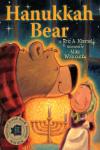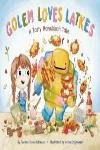Echoes of Elvis: A Journey Through Nostalgia and Rebellion

Buy this book at Amazon or for Kindle or at Bookshop
Thoughts on “All Shook Up” by Enid Langbert
How is it possible that a beautiful novel that was written in the first person point of view of a 14-year-old girl and is set in 1956 in the USA has so many levels of personal connection to me (a 50+ male who grew up in Eastern Europe) that it all shook me up? The answer contains passionate storytelling, emotional twists, and surprising parallels. The notes below include segments of my personal history and thoughts the book brought forward. These correspond to one of the major themes of the book: nostalgia.
One may think about nostalgia positively or negatively as a trip down memory lane, but it has psychological and social functions, too. For the American audience of a certain age, reading a book that took its title from an Elvis Presley song and where the King plays a pivotal role in itself is nostalgic. For those who lived through the height of his career and liked him, remembering the excitement of that age and revisiting the cherished memories conjure up positive feelings. It also provides a social connection to each other for this age cohort.
The private emotions–and occasional public display–that erupted from becoming an Elvis fan were brutally deep. Langbert’s book accurately and evocatively captured the atmosphere of the initial excitement when Presley exploded in young girls’ ears, hearts and eyes in the USA. Paula, the protagonist, whose life we follow from the inside, was already tuned to rock-and-roll, unlike her parents, when she first heard of the charged songs of Elvis that immediately captured and excited her young heart. Here is, from page 73, how she felt when she first saw him on TV:
But I couldn’t think about that anymore because there he was. Oh, my God. It was Elvis. In our living room, a few feet away from where I was sitting. Elvis was holding his guitar and smiling. How could I ever have thought this wouldn’t be the greatest moment of my life. I tried to keep from screaming.
Even if you never were a huge Elvis fan, but if–like many teenagers, including myself– were part of any youth musical subculture, or if you were a fan of a particular artist, you can relate. Fandom in a hormonal age can amplify other feelings. The feeling of not being understood by your parents, who grew up at different ages with different challenges and cultures, is universal for teenagers. Imagine you feeling that your parents are too strict, and while you are a goody-two-shoes, you are also secretly adoring the cool kids with tendencies that your parents’ ethics label delinquent. Now add that you suddenly become friends with one of the fun kids via sharing being a fan of the most counterculture books of the time: The Catcher in the Rye. All of this and the influence of the new girl can motivate you to act in ways you may not have otherwise done. Or rather, don’t imagine this. Just read the book for more.
My mother is more or less the same age as the protagonist, and as a teenager, she had her rebellious streaks, too, sometimes acting against her more traditional parents. Both of her parents were Holocaust survivors, although their personal histories were different. When I was reading about Paula not knowing about her parents’ war story because they did not tell her, it reminded me of my mother, who, for a long time, also did not know the details of what her parents went through during the war. There are many details in the book’s story that run parallel to the lives of my family members, hidden or not. Reading the book, my empathy went into overdrive for Paula AND her parents. If books aim to show not-lived lives and circumstances to create a deeper understanding of the world, this book accomplishes that purpose.
Here are some of my favorite sentences from the book that not only show a profound understanding of and ability to describe the human psyche but also the versatility of the author’s use of language:
- We’re a bunch of phonies who know we’re phones and that makes us different from all the people who are phonies and don’t know they are phonies (page 52)
- I watched Barbara and Sheila walk away, I did not want to live another minute. Until Barbara turned around and winked. (66)
- Elvis was holding his guitar and smiling. How could I ever have thought this wouldn’t be the greatest moment of my life? (73)
- My life was the monster that grew two new heads every time you cut one off. (152)
- My mother’s thoughts. I did not have to think them. (160)
This captivating tale of a semi-rebellious teenager, not without a surprising twist at the end, will resonate with anyone who fantasized about daring to challenge the status quo, making it a must-read for those eager to embrace the thrill of defiance AND is open to learning more about backgrounds of behaviors and motivation before making irreparable decisions.
P.S. Sukkot 1957 – Elvis Presley had been on a visit to Israel. He was fascinated by all the booths he saw and by the religious men waving their lulavim and etrogim. When he returned to the U.S.A. he told Tom Parker, his manager, how wonderful his trip had been. Inspired by it all, he sat down and wrote the top hit – “I’m all shook up”.
P.P.S. The p.s. above is lifted from the internet without checking its veracity, i.e., don’t believe everything you read online. 😉
The book’s page at the publisher’s website: https://gosparkpress.com/product/all-shook-up/
The author’s website: https://www.enidlangbert.com/
Disclaimer: I have received a copy of this book and a small amount from the author which did not affect my review in any way.
Year first published: 2024















